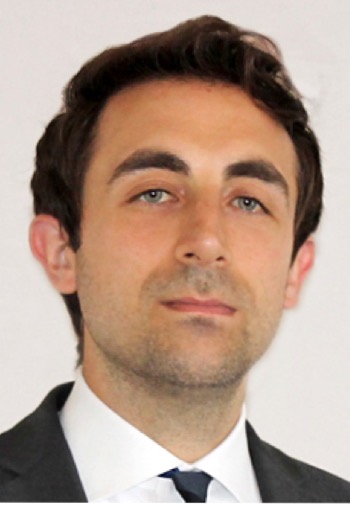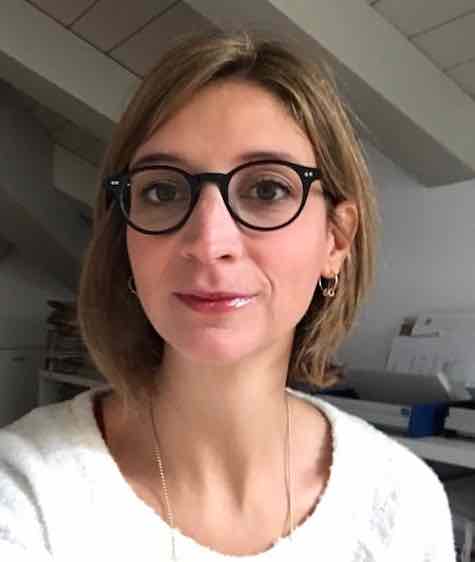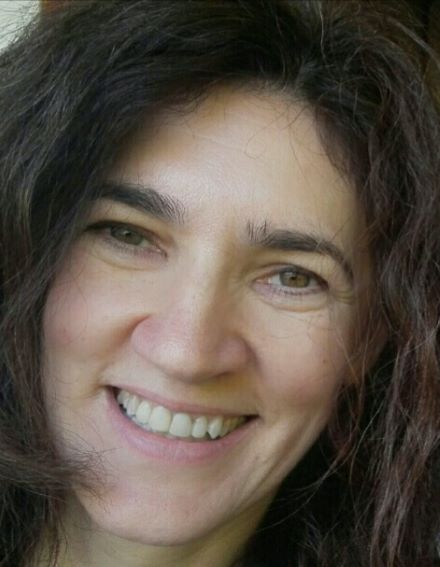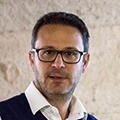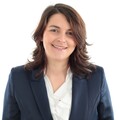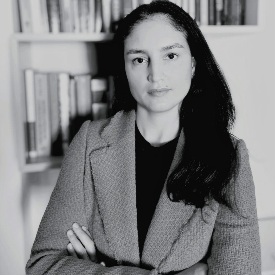Studying at the University of Verona
Here you can find information on the organisational aspects of the Programme, lecture timetables, learning activities and useful contact details for your time at the University, from enrolment to graduation.
Academic calendar
The academic calendar shows the deadlines and scheduled events that are relevant to students, teaching and technical-administrative staff of the University. Public holidays and University closures are also indicated. The academic year normally begins on 1 October each year and ends on 30 September of the following year.
Course calendar
The Academic Calendar sets out the degree programme lecture and exam timetables, as well as the relevant university closure dates..
| Period | From | To |
|---|---|---|
| Annuale (Lingue e letterature straniere) | Sep 28, 2020 | May 29, 2021 |
| I semestre (Lingue e letterature straniere) | Sep 28, 2020 | Jan 9, 2021 |
| II semestre (Lingue e letterature straniere) | Feb 15, 2021 | May 29, 2021 |
| Session | From | To |
|---|---|---|
| ESAMI LINGUE - sessione invernale | Jan 11, 2021 | Feb 13, 2021 |
| ESAMI LINGUE - sessione estiva | May 31, 2021 | Jul 24, 2021 |
| ESAMI LINGUE - sessione autunnale | Aug 30, 2021 | Sep 25, 2021 |
| Session | From | To |
|---|---|---|
| LAUREE LINGUE - sessione autunnale (a.a. 2019/20) | Nov 2, 2020 | Nov 7, 2020 |
| LAUREE LINGUE - sessione straordinaria (a.a. 2019/20) | Apr 7, 2021 | Apr 13, 2021 |
| LAUREE LINGUE - sessione estiva (a.a. 2020/21) | Jul 5, 2021 | Jul 10, 2021 |
| Period | From | To |
|---|---|---|
| Festa di Ognissanti | Nov 1, 2020 | Nov 1, 2020 |
| Festa dell'Immacolata | Dec 8, 2020 | Dec 8, 2020 |
| Festa della liberazione | Apr 25, 2021 | Apr 25, 2021 |
| Festa del lavoro | May 1, 2021 | May 1, 2021 |
| Festa del Santo Patrono | May 21, 2021 | May 21, 2021 |
| Festa della Repubblica | Jun 2, 2021 | Jun 2, 2021 |
Exam calendar
Exam dates and rounds are managed by the relevant Foreign Languages and Literatures Teaching and Student Services Unit.
To view all the exam sessions available, please use the Exam dashboard on ESSE3.
If you forgot your login details or have problems logging in, please contact the relevant IT HelpDesk, or check the login details recovery web page.
Should you have any doubts or questions, please check the Enrollment FAQs
Academic staff
 alessandro.bigi@univr.it
alessandro.bigi@univr.it
Borello Giuliana
 giuliana.borello@univr.it
giuliana.borello@univr.it
 045 802 8493
045 802 8493
 bernardo.calabrese@univr.it
bernardo.calabrese@univr.it
 lidia.carolgerones@univr.it
lidia.carolgerones@univr.it
 riccardo.cella@univr.it
riccardo.cella@univr.it
 elisa.dallarosa@univr.it
elisa.dallarosa@univr.it
 sara.dattoma@univr.it
sara.dattoma@univr.it
 andrea.menegotto@univr.it
andrea.menegotto@univr.it
 chunye.niu@univr.it
chunye.niu@univr.it
 beatrice.scappini@univr.it
beatrice.scappini@univr.it
 paolo.tacchella@univr.it
paolo.tacchella@univr.it
Study Plan
The Study Plan includes all modules, teaching and learning activities that each student will need to undertake during their time at the University.
Please select your Study Plan based on your enrollment year.
1° Year
| Modules | Credits | TAF | SSD |
|---|
1st foreign language2nd foreign languageIntellectual property and competition law
Strategic management applied to international markets
Financial Statement Analysis
History of international trading
2° Year activated in the A.Y. 2021/2022
| Modules | Credits | TAF | SSD |
|---|
1st foreign languageDigital and interactive marketing for goods and services
| Modules | Credits | TAF | SSD |
|---|
1st foreign language2nd foreign languageIntellectual property and competition law
Strategic management applied to international markets
Financial Statement Analysis
History of international trading
| Modules | Credits | TAF | SSD |
|---|
1st foreign languageDigital and interactive marketing for goods and services
| Modules | Credits | TAF | SSD |
|---|
Legend | Type of training activity (TTA)
TAF (Type of Educational Activity) All courses and activities are classified into different types of educational activities, indicated by a letter.
Varieties of German 1 (2020/2021)
Teaching code
4S002973
Teacher
Coordinator
Credits
9
Language
German
Scientific Disciplinary Sector (SSD)
L-LIN/14 - LANGUAGE AND TRANSLATION - GERMAN
Period
II semestre (Lingue e letterature straniere) dal Feb 15, 2021 al May 29, 2021.
Learning outcomes
On successful completion of this course, students should be able to: - recognize translation relevant text typologies; - analyse text types from the point of view of translation; - demonstrate knowledge about text specific translation problems; - solve translation problems occurring in the German-Italian and Italian-German translations of texts related to tourism and commerce; - produce target texts which are coherent with the text function and audience, on the basis of small translation assignment (German-Italian).
Program
During the course both the diaphasic and the diatopic dimension of the German varieties will be analyzed, with notes on the historical development of German. In the first part of the course the concepts of variation, variant and variety will be introduced with respect to the different dimensions. The diachronic variation will be introduced and linked to the synchronic variation in German.
In the second part of the course diatopic varieties will be analyzed in detail, also with the help of audio and/or video materials, the genesis of the standard variety of German will be introduced and linked to the historical and sociolinguistic context of the Lutheran Reformation. Finally, the urban varieties spoken by the youth and the languages of specialization, in particular the language of commerce, will be treated.
Methods: Lectures on the contents of the course and seminars aiming at the active analysis of the linguistic materials and of scholarly essays.
The course programme also applies for students with the status "non-frequentante". Please note that the recordings of the lessons, as well as the material uploaded in the Moodle platform form an integral part of the examination programme.
Während des Kurses werden die deutschen Varietäten in diaphasischer und diatopischer Perspektive behandelt, mit Bezug auf die diachrone Variation. Im ersten Teil des Kurses werden die Konzepte von Variation, Variante und Varietät in den verschiedenen Dimensionen vorgestellt; es werden die diachronen Entwicklungen eingeführt und sie werden mit der synchronen Variation im Deutschen in Bezug gebracht. Im zweiten Teil des Kurses werden die diatopischen Varietäten, auch durch multimediale Materialien (Audio und/oder Video), eingehend analysiert, sowie die Entstehung der deutschen Standardvarietät im historischen und soziolinguistischen Kontext der lutherischen Reformation. Schließlich werden die Varietäten der urbanen Jugendsprachen, die Fachsprachen, insbesondere die Wirtschaftssprache, behandelt.
Methoden: Vorlesungen und Seminare, die die aktive Analyse von dem linguistischen Material und von wissenschaftlichen Aufsätzen zum Ziel haben.
Das Programm der Lehrveranstaltung gilt auch für Studierende mit dem Status "non frequentante"; bitte beachten Sie, dass die Aufnahmen der Vorlesungen, sowie das Material, das auf der Moodle Plattform hochgeladen wird, einen wesentlichen Bestandteil des Prüfungsprogramms bilden.
| Author | Title | Publishing house | Year | ISBN | Notes |
|---|---|---|---|---|---|
| Speyer, Augustin | Deutsche Sprachgeschichte | Vandenhoeck & Ruprecht | 2010 | ||
| Ammon, Ulrich | Die deutsche Sprache in Deutschland, Österreich und der Schweiz: Das Problem der nationalen Varietäten | De Gruyer | 1995 | ||
| Becker, Andrea & Markus Hundt | Die Fachsprache in der einzelsprachlichen Differenzierung | De Gruyer | 1998 | ||
| Coseriu, Eugenio | Einführung in die allgemeine Sprachwissenschaft | Francke | 1992 | ||
| Materiali multimediali forniti a lezione | Estratti dalla Datenbank für gesprochenes Deutsch: https://dgd.ids-mannheim.de/dgd/pragdb.dgd_extern.welcome | ||||
| Gohl, C. & .Günthner, S. | Grammatikalisierung von weil als Diskursmarker in der gesprochenen Sprache | 1999 | |||
| Neuland, Eva | Jugendsprache. Eine Einführung | Narr-Francke UTB Tübingen | 2008 | ||
| Hundt, Markus | Modellbildung in der Wirtschaftssprache: zur Geschichte der Institutionen- und Theoriefachsprachen der Wirtschaft | De Gruyer | 1995 | ||
| Hartmann, Dietrich | Standardsprache und regionale Umgangssprachen als Varietäten des Deutschen. Kriterien zu ihrer Bestimmung aus grammatischer und soziolinguistischer Sicht | 1990 | |||
| Ammon, Ulrich | Was ist ein deutscher Dialekt? | Niemeyer | 1994 | ||
| Besch, Werner | Zur Entstehung der neuhochdeutschen Schriftsprache | 1968 | |||
| Günthner, S. | Zur Verwendung von wobei im gesprochenen Deutsch | 2000 |
Examination Methods
Prerequisite for the examination is the C2 level language certificate (Common European Framework of Reference), obtained through CLA or through external institutions.
Oral examination. The oral examination will test the knowledge of the themes discussed and the critical and analytical abilities acquired during the course.
Students with the status "non frequentanti" are required moreover to hold an oral presentation of about 10 minutes about a topic related to the main theme of the course. The topic must be previously agreed with the teacher.
Voraussetzung für die Prüfung ist die Sprachkompetenz C2. Die Sprachkompetenz kann durch die Zertifikate des CLA (Centro Linguistico di Ateneo) oder anderer anerkannter Institute nachgewiesen werden.
Es handelt sich um eine mündliche Prüfung; Die Studierende werden über die Grundbegriffe des Vorlesungsstoffes geprüft, sowie über die kritischen und analytischen Kompetenzen, die während des Kurses durch die Diskussion von wissenschaftlichen Aufsätzen und die Analyse von sprachlichem Material erworben werden. Studierende mit dem Status "non frequentante" müssen außerdem ein Referat über ein mit dem Hauptthema des Kurses zusammenhängendes Thema halten. Der Vortrag muss circa 10 Minuten dauern und das Thema muss mit der Dozentin im Vorfeld abgesprochen werden.
Type D and Type F activities
| years | Modules | TAF | Teacher |
|---|---|---|---|
| 1° 2° | Brasilian Portuguese language (elementary) | F |
Leticia Valandro
(Coordinator)
|
To discover all the teaching activities accredited by the foreign teaching college click here
Career prospects
Module/Programme news
News for students
There you will find information, resources and services useful during your time at the University (Student’s exam record, your study plan on ESSE3, Distance Learning courses, university email account, office forms, administrative procedures, etc.). You can log into MyUnivr with your GIA login details: only in this way will you be able to receive notification of all the notices from your teachers and your secretariat via email and soon also via the Univr app.
Gestione carriere
Student login and resources
Attività accreditate D/F
Calendario didattico dettagliato
Competenze linguistiche (prima e seconda lingua)
Language skills
Compilazione del piano didattico
Corso di Lingua portoghese
Erasmus+ e altre esperienze all'estero
Linguistic training CLA
Percorso verso l'insegnamento
Una delle possibilità per gli studenti dopo il conseguimento della laurea magistrale è l’insegnamento nella scuola: l’Università degli Studi di Verona è tra gli enti accreditati dal MIUR per l'erogazione di corsi di formazione e aggiornamento e qualificazione delle competenze per insegnanti. Il percorso per diventare insegnante è legato alle seguenti condizioni:
1a CONDIZIONE
Il possesso della laurea magistrale o a ciclo unico, oppure diploma di II livello dell’alta formazione artistica, musicale e coreutica, oppure titolo equipollente o equiparato, coerente con le classi di concorso vigenti alla data di indizione del concorso; il futuro insegnante dovrà, inoltre, soddisfare i requisiti di accesso previsti per la classe di concorso scelta.
Per le classi di concorso:
- A-24 (Lingue e culture straniere negli istituti di istruzione secondaria di II grado) e
- A-25 (Lingua inglese e seconda lingua comunitaria nella scuola secondaria I primo grado)
sono previsti i seguenti requisiti di accesso (vedi l’allegato A al DM 259/2017):
1) 18 CFU nei settori scientifico disciplinari L-LIN/01 e/o L-LIN/02
2) 36 CFU della lingua di specializzazione scelta
3) 24 CFU della letteratura relativa alla lingua di specializzazione scelta.
I requisiti specifici delle classi di concorso A-24 e A-25 possono essere soddisfatti nell’ambito dei piani didattici o negli esami a scelta libera superati all’interno del percorso di studio universitario (Laurea Triennale e Magistrale), oppure attraverso l’iscrizione a corsi singoli.
Il requisito relativo alla lingua di specializzazione (2) è soddisfatto (sulla base degli esami previsti nel piano didattico) nell’ambito del percorso formativo che comprende una laurea triennale dell’area di Lingue e Letterature Straniere, seguita da una laurea magistrale della medesima area (qualsiasi Corso di Laurea triennale e magistrale dell’area di Lingue e Letterature Straniere).
Per verificare i requisiti relativi alla letteratura di specializzazione (3) e agli insegnamenti di linguistica che appartengono ai settori scientifico-disciplinari di L-LIN/01 e L-LIN/02 (1), invece, gli studenti sono invitati a consultare il proprio piano didattico per verificare il numero di CFU previsti nel percorso formativo.
2a CONDIZIONE
Il possesso dei 24 crediti formativi universitari o accademici acquisiti in forma curricolare, aggiuntiva o extra curricolare nelle discipline antropo-psico-pedagogiche e nelle metodologie e tecnologie didattiche, garantendo comunque il possesso di almeno 6 CFU conseguiti in ciascuno di almeno tre dei seguenti quattro ambiti disciplinari:
1) pedagogia;
2) pedagogia speciale e didattica dell’inclusione;
3) psicologia; antropologia;
4) metodologie e tecnologie didattiche.
Percorso formativo 24 CFU
Consente di acquisire uno dei requisiti di partecipazione al concorso nazionale per l’accesso al “percorso annuale di formazione iniziale e prova” su posti comuni e di sostegno, ai sensi del D.Lgs 13 aprile 2017, n. 59 come modificato dalla legge n.145 del 30/12/2018 (c. dal 792 al 796).
I settori scientifico disciplinari, gli obiettivi formativi, le modalità organizzative e gli eventuali costi sono stati stabiliti dal D.M. 10 agosto 2017, n. 616.
Per sapere quali insegnamenti della propria carriera vengano automaticamente riconosciuti si rimanda alla pagina del sito di Ateneo dedicata al percorso formativo 24 CFU.
Si consiglia agli interessati di consultare la pagina https://www.univr.it/it/i-nostri-servizi/futuri-studenti/post-laurea/formazione-degli-insegnanti in costante aggiornamento, in particolare sezione documenti in cui vengono pubblicati formulari, programmi degli insegnamenti ed elenchi di studenti ammessi.
Tra gli insegnamenti automaticamente riconosciuti nell’ambito dei 24 CFU vi sono: Insegnamento delle lingue (L-LIN/02) e Apprendimento delle lingue (L-LIN/02), previsti nel piano didattico del curriculum Linguistico-didattico del CdS di Lingue e letterature straniere (LLS).
Gli studenti immatricolati nel CdS di LLS che hanno scelto i curricula Letterario e Artistico possono comunque inserire tali insegnamenti nel piano di studi come crediti D (a scelta libera).
Gli studenti immatricolati negli altri CdS triennali del Dipartimento di Lingue e letterature straniere (Lingue e culture per il turismo e il commercio internazionale; Lingue e culture per l’editoria [a esaurimento]; Lingue e letterature per l’editoria e i media digitali) posso inserire tali insegnamenti nella propria carriera solo su eventuale autorizzazione preventiva del Presidente del Collegio Didattico (mediante Help desk).
Il soddisfacimento della 1a e 2a condizione è requisito obbligatorio per partecipare ai concorsi di abilitazione o specifici percorsi post lauream previsti dal Ministero.
Presentazione dei corsi di studio e Open day
Graduation
Stage e tirocini
Nel piano didattico della laurea magistrale in Lingue per la comunicazione turistica e commerciale (LM38) è previsto un periodo di stage/project work (CFU 9).
Le attività di stage sono finalizzate a far acquisire allo studente una conoscenza diretta in settori di particolare utilità per l’inserimento nel mondo del lavoro e per l’acquisizione di abilità specifiche d’interesse professionale. Tali attività possono essere svolte in aziende nazionali ed estere che operano nel settore del turismo e che presentano sbocchi di mercato internazionali, accreditate presso l’Ateneo Veronese, nonché presso Enti della Pubblica Amministrazione, Laboratori e Centri di Servizi pubblici (sono da intendersi in questo novero anche i Centri di Servizio ed i Laboratori che fanno capo all’Ateneo). Tali attività possono svolgersi anche nel contesto di project work organizzati sotto la diretta responsabilità di un docente o di un esperto del settore incaricato dal Collegio Didattico.
I crediti maturati in seguito ad attività di stage saranno attribuiti secondo quanto disposto nel dettaglio dal “Regolamento d’Ateneo per il riconoscimento dei crediti maturati negli stage universitari” vigente.
- Tutte le informazioni in merito agli stage per futuri studenti sono disponibili alla pagina Stage e tirocini.
- Tutte le informazioni in merito agli stage per studenti iscritti sono pubblicate in MyUnivr - come fare per - stage e tirocini.
- Tutte le informazioni in merito agli stage per le aziende sono disponili alla pagina Stage e tirocini per azienze.
Ulteriori informazioni al seguente link https://www.univr.it/it/i-nostri-servizi/gestione-carriere-studenti-lingue-e-letterature-straniere/stage-e-tirocini-lingue-e-letterature-straniere





